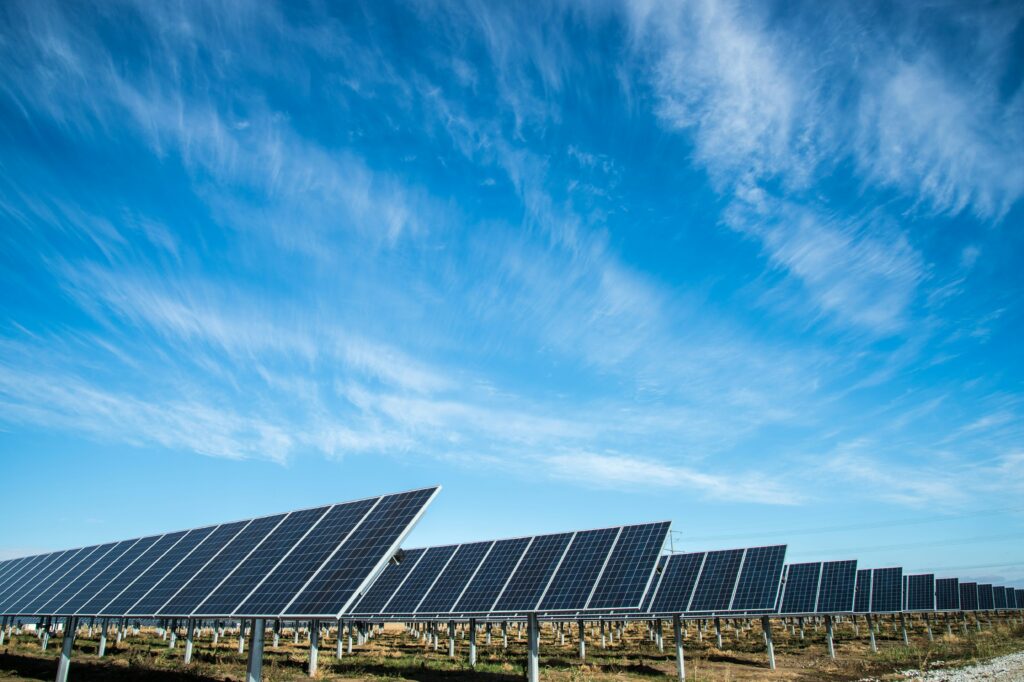Have you ever looked at your business’s electric bill and wondered if there’s a better way?
With costs rising and pressure to go green, companies today are searching for smarter energy solutions. Solar power offers a clear path to lower bills, energy independence, and long-term stability.
Whether you run a small shop or a large warehouse, this switch can make a big difference. In this article, you’ll discover how solar isn’t just about saving the planet-it’s about saving money, too.
Lower Energy Bills
Businesses that use solar power often see major cuts in their electricity bills. Solar panels generate power during the day, reducing how much energy you need to buy from the utility. Over time, this leads to steady savings that help manage monthly expenses.
As the system continues to produce electricity, your business becomes less dependent on grid energy. The reduction in energy bills can help free up funds for other business needs. These savings grow over the years and can become a major part of your financial strategy.
Tax Incentives and Rebates
Governments offer several programs to support commercial solar adoption. These include tax credits, rebates, and special depreciation schedules that lower the cost of installing solar systems. These benefits can cut the upfront price of solar power by a large margin.
Tax savings make it easier for businesses to invest in clean energy. Rebates may come from local utilities or state-level programs. Together, these incentives create a strong reason to choose solar energy as part of a long-term business plan.
Protection Against Rising Energy Costs
Electricity rates tend to increase over time, adding pressure to business budgets. Solar power gives companies more control over these rising costs by producing a portion of their energy on-site. Once installed, a solar system helps reduce the impact of future price hikes.
This cost control helps businesses plan better for the future. It allows for a more predictable operating budget. That stability can be useful when making financial decisions or setting long-term goals.
Fast Return on Investment
Most commercial solar systems pay for themselves within a few years. The savings from lower electricity bills help recover the installation cost. After the payback period, the energy your system produces is nearly cost-free.
Businesses that want to reduce long-term expenses often explore solar options. This step can support both your financial and operational goals without major ongoing costs.
Increased Property Value
Installing solar panels can increase the value of a commercial building. Energy-efficient buildings are more attractive to buyers, tenants, and investors. Lower operating costs and energy independence make the property more appealing.
A solar system becomes a fixed asset that adds measurable value. It can make the property easier to sell or lease in the future. Many buyers look for buildings with lower utility costs and modern energy systems.
Environmental Impact
Solar power reduces greenhouse gas emissions and lowers a business’s carbon footprint. It uses clean energy from the sun to generate electricity without polluting the air or water. This makes it a responsible choice for businesses focused on sustainability.
Adopting solar energy shows a commitment to environmental goals. It can strengthen a company’s brand and build trust with customers. Many people prefer to support businesses that care about the planet.
Energy Independence and Reliability
Solar systems give businesses more control over their power supply. This is especially important in areas where the power grid is unreliable. Solar energy can keep operations running even during outages, especially when paired with battery storage.
Energy independence means fewer disruptions and better protection from grid failures. It also supports business continuity and protects sensitive equipment. This reliability adds value beyond just energy savings.
Low Maintenance Costs
Solar power systems need very little maintenance to stay effective. They have no moving parts and are built to handle tough weather conditions. Most systems last for 20 years or more with only occasional cleaning or checks.
Routine inspections can help keep the panels in good shape. Many installers offer service plans or warranties that cover most issues. This keeps the cost of ownership low and reduces the need for frequent repairs.
Strong Brand Image
Using solar power shows that a business is thinking about its impact on the world. Customers, partners, and investors often support companies that make clean energy choices. A solar-powered business can build a stronger public image by taking real action on sustainability.
This can help attract new customers who value environmental responsibility. It can also help with public relations and marketing efforts. A strong brand image can lead to more loyalty, more trust, and more opportunities for growth.
Long-Term Financial Stability
Solar power helps businesses plan for the future by reducing energy cost uncertainty. Once the system is installed, the energy it produces is consistent and predictable. This reduces the risk of sudden budget changes caused by rising utility rates.
The savings from solar can be used in other parts of the business. Lower monthly costs make financial planning easier and more stable. Over time, this creates a more secure and balanced financial outlook.
Meeting Regulatory and ESG Goals
More regions are setting rules that require businesses to lower their carbon emissions. Solar power helps meet these rules by cutting down on fossil fuel use. Companies that meet or exceed environmental standards may also avoid future penalties or restrictions.
Many investors now look at Environmental, Social, and Governance (ESG) performance. Using solar energy supports ESG goals and can improve a company’s overall score. This may lead to better access to funding or partnerships with ESG-focused organizations.
Solar Power: Your Profits With the Sun
Making the move to solar power is more than a smart business decision-it’s an investment in your future. It helps cut overhead, boosts your reputation, and supports a more stable bottom line. Best of all, it puts you in control of your energy use.
Every day you wait is a missed chance to save. Solar is no longer just an option-it’s a competitive advantage that keeps giving for years to come.
Did you learn something new from this article? If so, be sure to check out our blog for more educational content.



